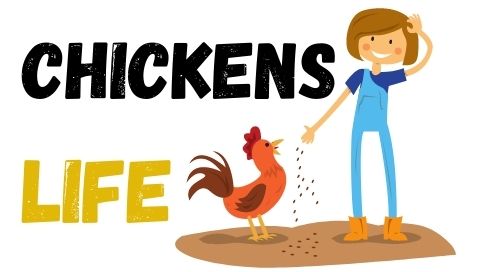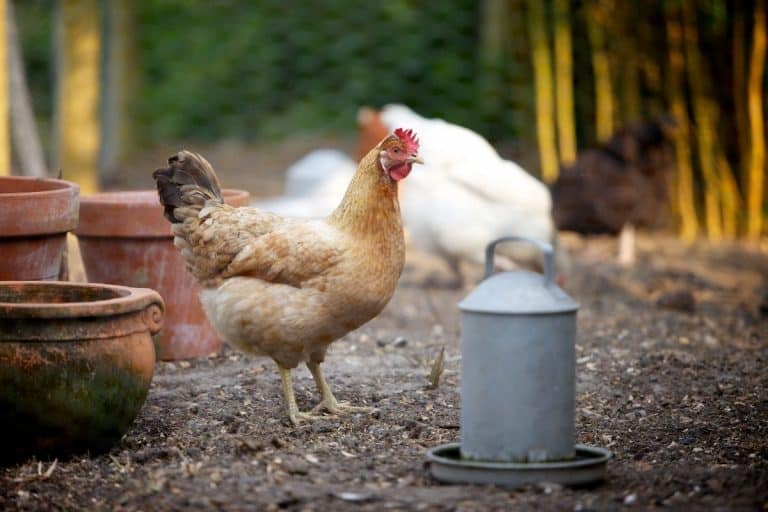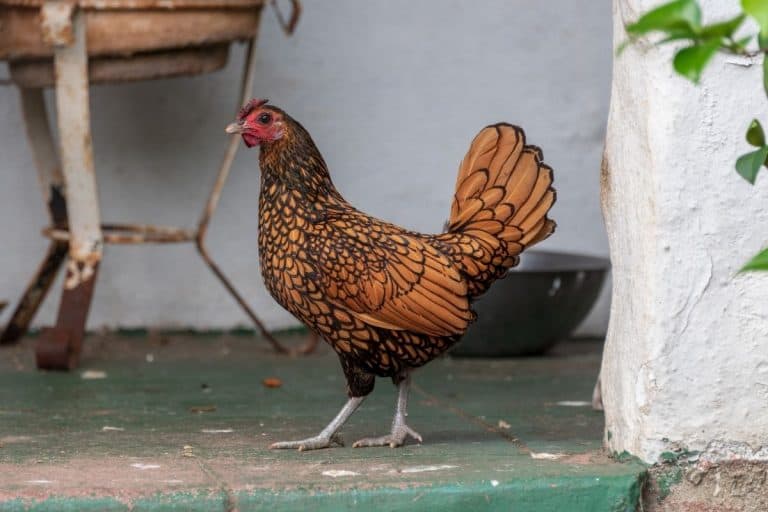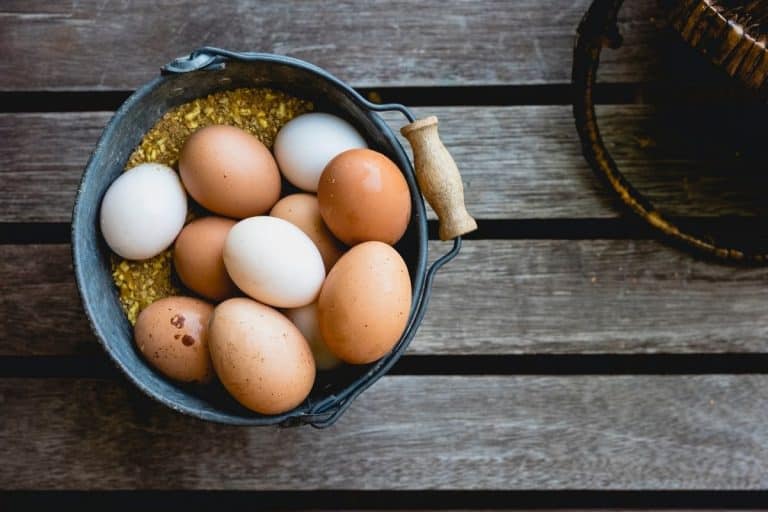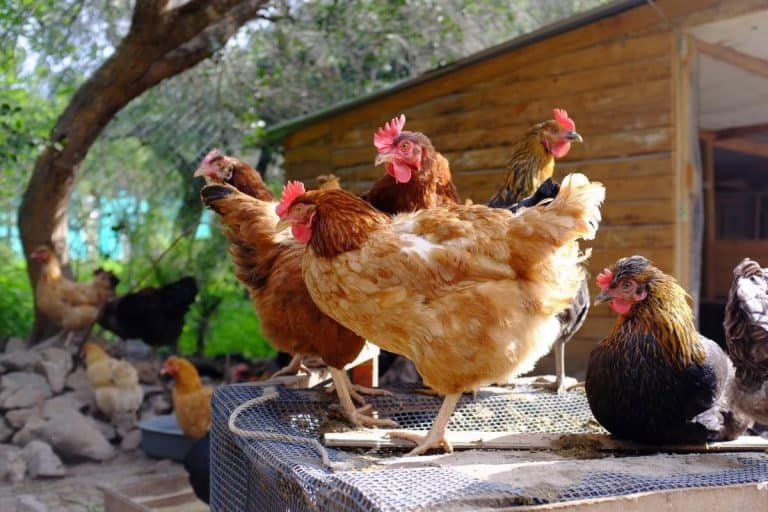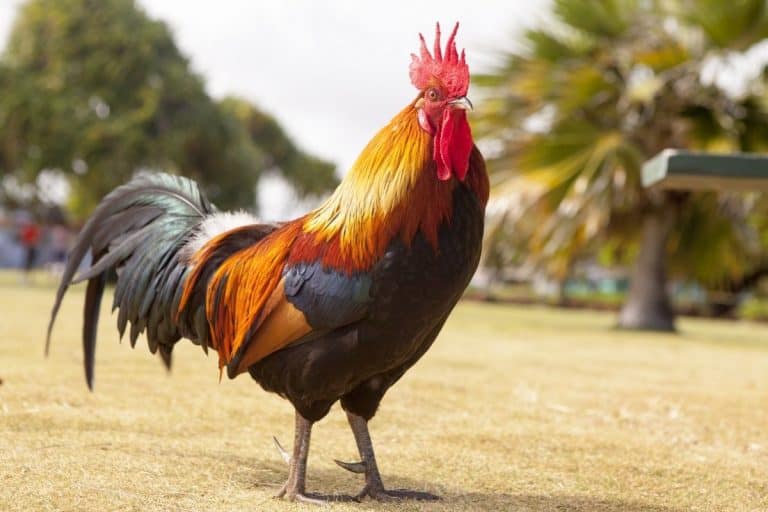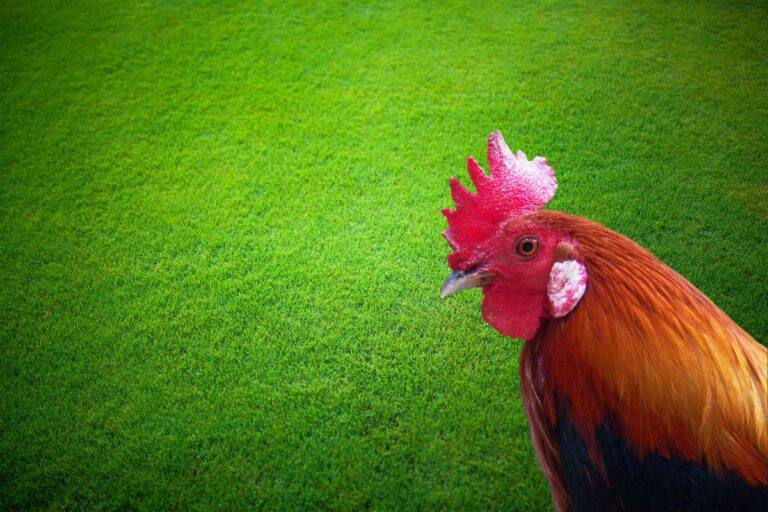Can Chickens Drink Dirty Water?
Water is the most necessary nutrient for all living organisms, including chickens. However, many chicken owners are unaware of the importance of water and its role in the health and production of chickens, and they usually provide low-quality or dirty water to their birds.
In general, giving dirty water to chickens increases the risk of infection and has a negative impact on productivity. According to studies, chickens who drink contaminated water lose weight and limit their water intake, resulting in low egg production and poor egg quality.
As a chicken owner, you must understand the importance of clean water for your flock’s health and how dirty water might affect their production. Read on for a full guide on what happens to chickens who drink dirty water and the consequences for human health.
But before you dive into this topic, did you know I've got a page packed with my go-to chicken stuff? From the best feed to handy tools, it's all there. Don't you want the best for your flock? Check it out right here.
How Important Is Clean Water For Chickens?
Water is the most essential nutrient for chickens because a chicken’s body is roughly 70% water and they simply cannot survive without it.
When it comes to providing water to chickens, every chicken owner should prioritize clean and fresh water because dirty water can have a significant impact on the overall health and production of your chickens.
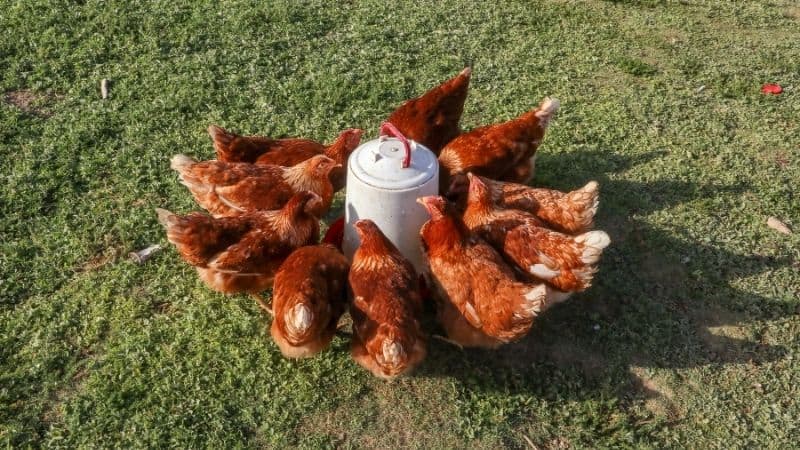
Clean water is appealing to chickens since it has no unpleasant odor or taste. Chickens have between 240 and 360 taste buds on average, depending on the breed, thus anything that tastes awful, including water, will be avoided.
Clean water aids in increasing hydration levels in a chicken’s body. Since protein makes up the majority of a chicken’s diet, water is essential for proper digestion. Chickens cannot digest their food or provide nutrients to their bodies if they do not have access to water.
Chickens cannot produce good-quality eggs without clean water because water makes up a significant portion of the egg (about 65%).
When there is a lack of water in a hen’s body, there is less albumen in the egg, and the yolk percentage decreases, resulting in reduced egg weight and poor quality.
So, if you want your chickens to be healthy and productive, give them fresh, clean drinking water that is free of contaminants.
Wait, I have some recommendations for you!
Before you go any further, I want you to take a look at some of the recommendations I've handpicked for you. I think these are essential items you should have for your chickens flock. You can check them out and buy them directly from Amazon.
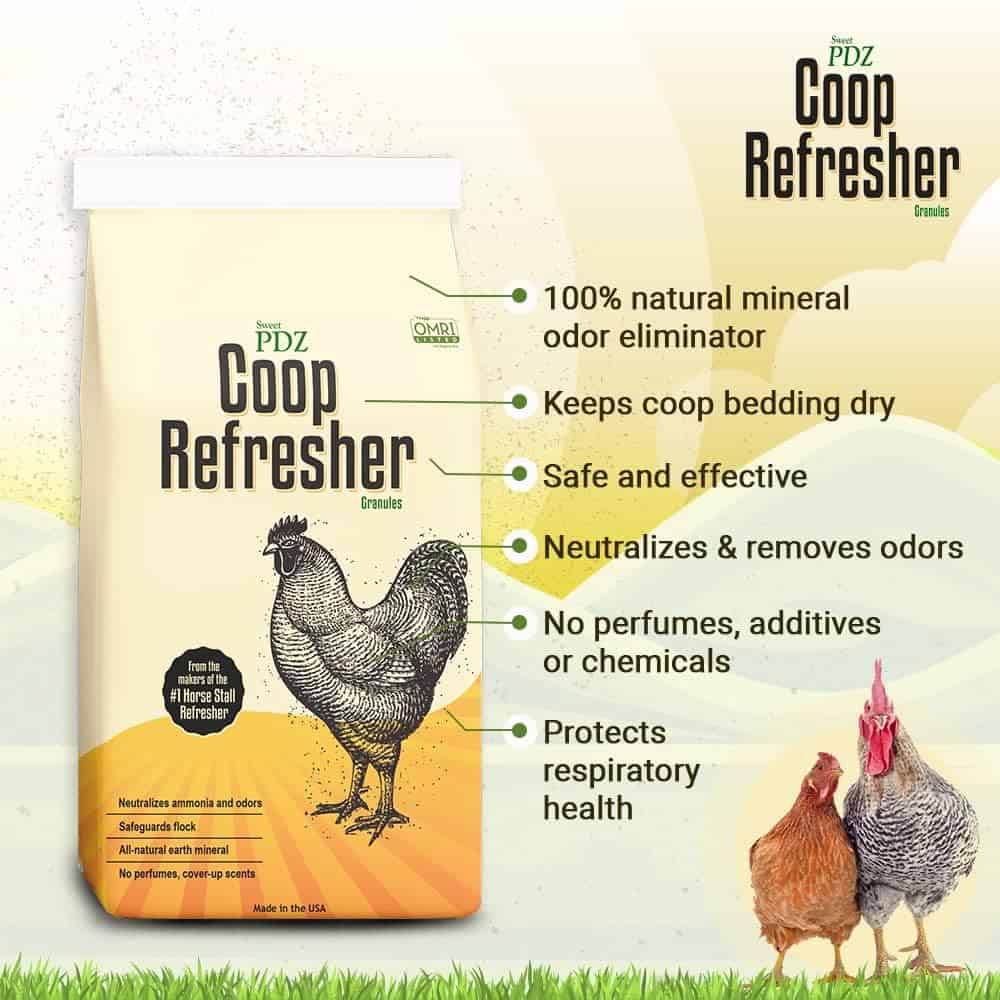 | 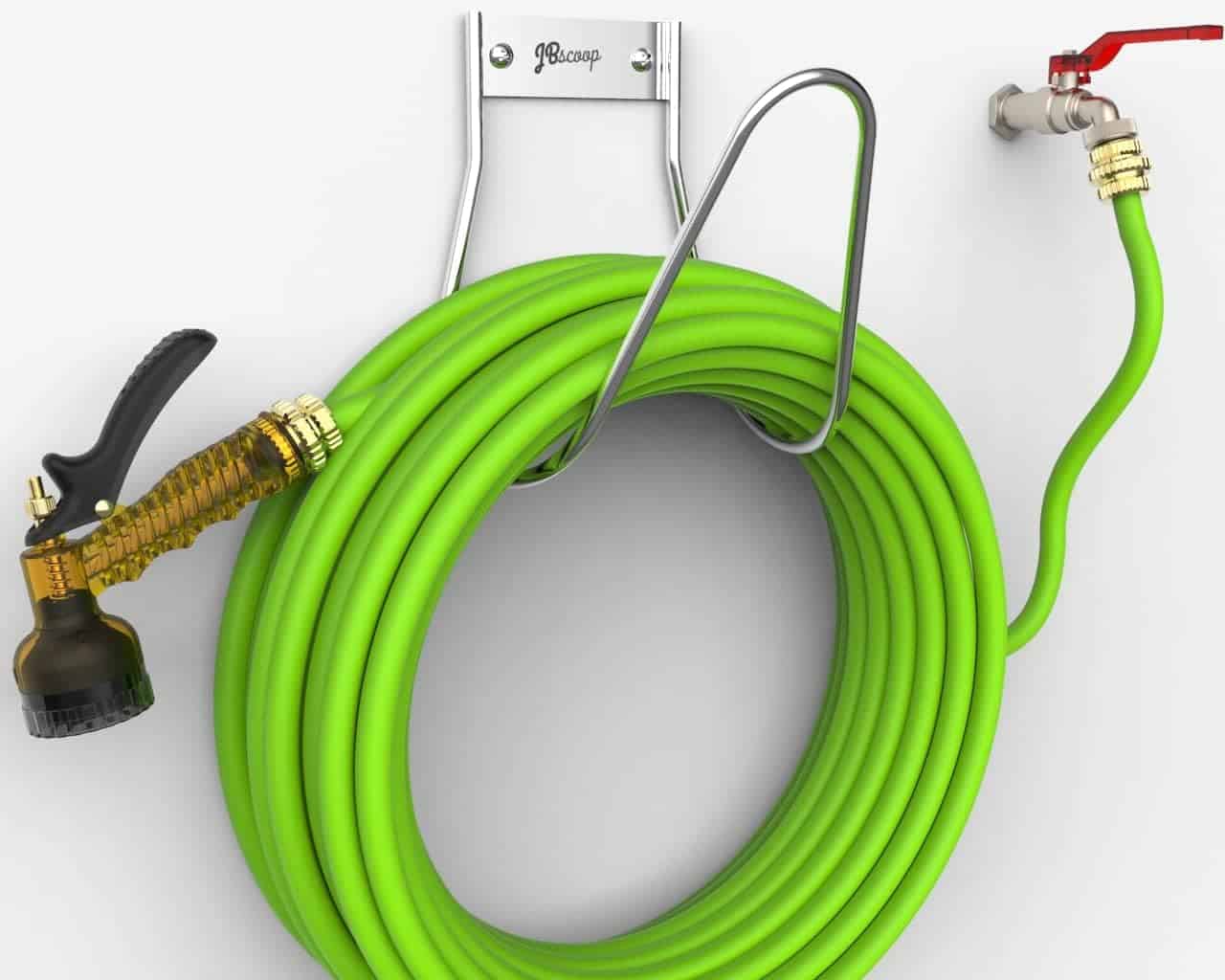 | 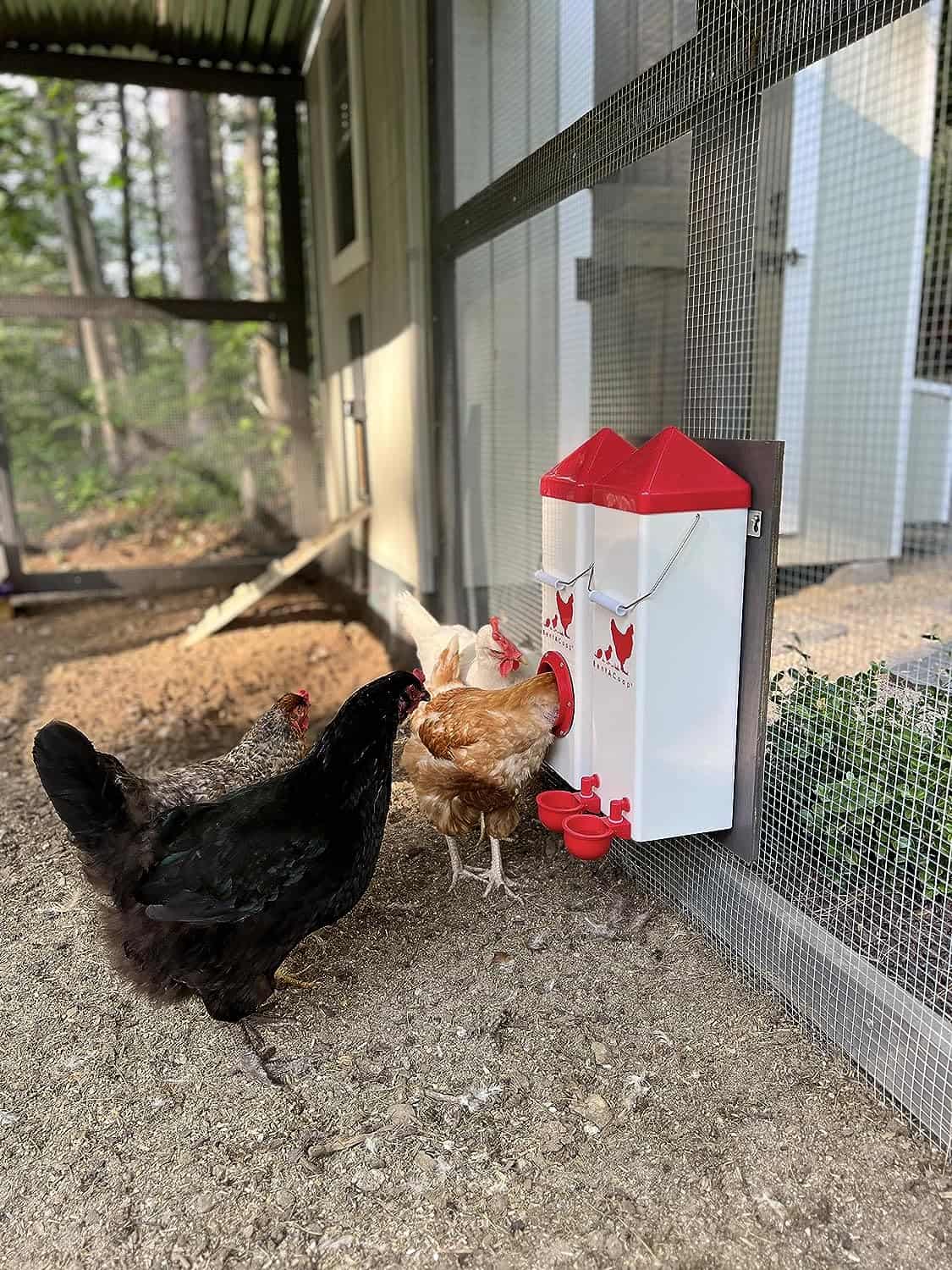 | 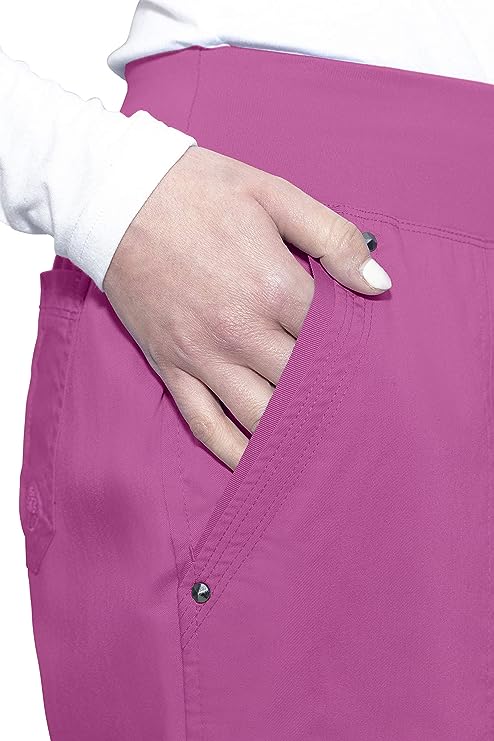 |
| Essential accessory for your coop | No more tripping over hoses! | Predator protection made easy | Comfort + style is possible |
Drawbacks Of Offering Dirty Water To Chickens
Some of the biggest drawbacks of providing unclean drinking water to your chickens are as follows:
Health risks
The main danger of giving dirty water to chickens is that they will contract diseases and infections.
Bacteria, viruses, parasites, and other pathogens in dirty water can cause a variety of health problems in chickens, particularly in young chicks, as they have a weak immune system.
Along with bacteria, unclean water can contain toxic compounds including arsenic, cadmium, and lead, which can cause decreased egg production, poor growth, weaker immune systems, and even death if consumed in significant amounts.
Reduced water intake
If the water is dirty and contaminated, the taste may not be appealing to the chickens, who have a large number of taste buds. If the palatability of the water decreases chickens will be reluctant to drink it.
Any foul odor coming from the dirty water might also influence the chickens’ water intake. Less water consumption will cause dehydration, which can have serious implications for your chickens’ health and production.
Related: How Much Water Does A Chicken Drink In A Day?
Poor feather quality
The feathers of a chicken are one of the first things to suffer as a result of drinking dirty water. Lack of access to clean water causes poor feather quality, making chickens more vulnerable to external parasites like mites and lice.
Dirty water can also cause skin irritations and infections, causing discomfort and stress in the chickens.
Decreased feed consumption
To improve their appetite, chickens want plenty of fresh, clean drinking water. They may limit their feed intake if they consume dirty water from an unhygienic source. This can have a negative impact on their growth, egg production, and overall health.

Low feed intake can have a significant influence on farm economics especially if you are raising chickens for meat. As feed intake decreases FCR (feed conversion ratio) will drop along with the body weight of your chickens.
Impaired digestion
Aside from food, chickens require plenty of clean water to digest what they eat. Chickens have a different digestive system than humans, and their food consists primarily of solid grains, feed particles, and insects, all of which are high in protein, and water is necessary in abundance for protein digestion.
Water is also required by chickens in order to soften the ingested food that is stored in their crop. As a result, if they do not drink enough, the food particles remain coarse, disturbing the normal digestion process.
Contaminants and microorganisms in dirty water can disrupt digestion, resulting in diarrhea, poor nutrient absorption, and decreased overall feed efficiency.
Spread of diseases
Waterborne diseases such as Salmonella infection, E.coli, and other infections in chickens can be transmitted by contaminated water.
If one bird becomes infected, the water source is quickly contaminated, putting the entire flock at risk. In some situations, this can result in the mortality of the entire flock.
Increased stress
Dirty water can increase stress levels in chickens making them more susceptible to discomfort and illness. Chronic stress can have a severe impact on their overall health and productivity.
Weight loss
Weight loss is a major concern in chickens who drink unclean water due to poor digestion and insufficient feed intake.
Poor egg production and quality
As hens lose weight, their egg production decreases, as does the weight of their eggs.
Increased embryonic mortality
According to research, hens who drink dirty water have a lower likelihood of their eggs hatching due to an increased risk of embryonic mortality.
Reduced efficacy of Medicines
The majority of the medications used to treat bacterial infections in chickens are often administered in the water. As a result, if the water quality is poor or you mix medicine in dirty water, pollutants in the water will reduce its efficacy.
The medication will offer no benefits, and the treatment period will be extensive. You may have to spend more money on medicine, which will have an impact on the economics of your farm.
Related: Do Chickens Need Vaccines? (Advice from a veterinarian)
Negative impact on human health
Consuming eggs and meat from chickens that have been drinking dirty water or water from unhygienic sources can have serious consequences on human health.
Because numerous chemical pollutants, including lead, arsenic, and others, can end up in chicken meat and eggs, as well as some microorganisms like salmonella.
Can Bad Water Make Chickens Sick?
According to research from Auburn University’s Department of Physiology and Pharmacology, College of Veterinary Medicine, dirty water, particularly water contaminated with industrial chemicals such as arsenic, cadmium, lead, benzene, and trichloroethylene, has a negative impact on chicken reproductive performance, egg quality, and embryo.
The research found that drinking such water contributed to weight loss and less water intake in hens. Harmful chemicals in contaminated water also reduce egg production and egg weight, as well as increase the percentage of embryonic deaths.
Dirty water is also harmful to the male reproductive system. Chemicals in contaminated water reduce sperm quality and cause hormonal fluctuations in male chickens.
What Infections Can Chickens Get From Drinking Dirty Water?
Following are some of the major infections that chickens can acquire by drinking dirty water:
Bacterial infections
- Salmonella infection
- E.coli infection
- Campylobacteriosis
Viral infections
- Avian influenza
Protozoal infections
- Coccidiosis
Parasitic infections
- Roundworms
- Tapeworms
- Flukes
Fungal infections
- Aspergillosis
Can Chickens Drink Hard Water?
In general, hard water is safe for chicken consumption and poses no harm to their health or production. One main disadvantage of hard water is the formation of mineral deposits in poultry equipment, which can be a cause of frustration for many poultry owners.
Calcium carbonate and other minerals are commonly found in hard water. Mineral deposits can accumulate in drinking pipes, boilers, chillers, thermostats, and hatchery equipment over time.
Limescale or mineral buildup can have a severe impact on the working efficiency of such equipment, resulting in frequent breakdowns and loss of productivity.
How To Keep The Drinking Water Of Your Chickens Clean?
Keeping your chickens’ drinking water can be challenging, especially if you have a large flock. However, with the help of a few simple strategies, you may keep your chickens’ drinking water clean while also improving their lifestyle, health, and productivity.
Elevating the container, keeping it out of the sun, and washing it on a daily basis are some of these strategies. If you want to know more details on keeping your chickens’ water clean, I would recommend visiting our comprehensive guide.
How Much Water Does A Chicken Need Daily?
An adult chicken can drink half to one liter (a little more than two pints) of water per day on average. Water consumption in chickens can be influenced by a number of factors, including age, climate, feed quality, water quality, and a few others.
If you want to read an in-depth article on the daily water consumption of chickens and how it influences their production, check out our detailed guide here: How Much Water Does A Chicken Drink In A Day?

